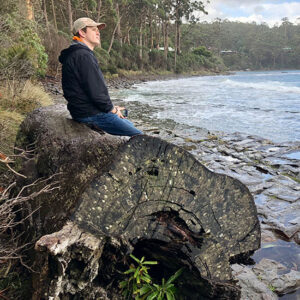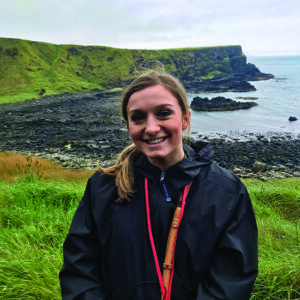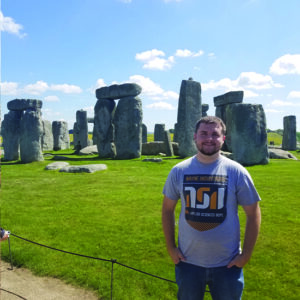Ken Shields
Challenge yourself, be uncomfortable and do something you’re afraid to do.
- Alumni
Ken Shields comes from a family with careers focused on transportation. His father graduated from the University of Tennessee with a degree in transportation and logistics, and Shields followed in his footsteps, graduating with the same degree in 1987. While his professional expertise might have been written in the stars, Shields never expected that his career would include working on the International Space Station.
Shields serves as director of operations at the Center for the Advancement of Science in Space (CASIS). In this role, he is responsible for planning and executing activities that involve payloads destined for the International Space Station’s National Laboratory. In this work he helps identify appropriate resources and technology partners to deploy those payloads and then tests, integrates and executes flight projects.
Shields says that facing challenges and setbacks, then learning from them, is integral to improving his work and what led him to this position, and he advises students not to be afraid of it.
“Everyone needs to experience the process of failure and then learn from it,” he says. “Challenge yourself be uncomfortable and do something you’re afraid to do. I never thought my career would take me to be part of the process that allows research and development to take place on the International Space Station, but I allowed myself to take each new step forward. I was okay with the possibility of failing and learning, because I knew the potential of my successes.”
Shields serves as a critical interface between CASIS and the NASA ISS National Lab Manager, the ISS Program Science Office and the ISS Payloads Office. He also directs a broad spectrum of space-related education and training programs for students, teachers and the general public by leveraging the ISS National Lab.
“My advice to both our students and our recent graduates is to constantly challenge themselves, try things that make them uncomfortable, step outside of their norms in situations and push themselves beyond their limits,” Shields says.
Shields shares his excitement about his work with youth under-represented in the STEM fields in the hopes that it might inspire their career choices.
“We need diversity in STEM,” Shields says. “Imagine the background and knowledge that some of these young kids could bring to the table. We have to do a better job of promoting the idea of working in the STEM fields at a young age, especially to our young girls and our under-represented youth. These kids have so much potential. They just need to be made aware that they can do it.”
Shields believes that change begins within each person’s home and their own community. He tries to donate his time and resources as a way of demonstrating his gratitude.
“It is important for us to give back in all facets of our lives,” he says. “For my family and me, it is vitally important to give back to the UT community, to complete the circle to help and foster an environment of success to those areas that made us successful.”
Shields was recently awarded the NASA Outstanding Public Leadership Medal for his excellence and innovation in broadening the commercial participation in space utilizing the International Space Station National Laboratory.





